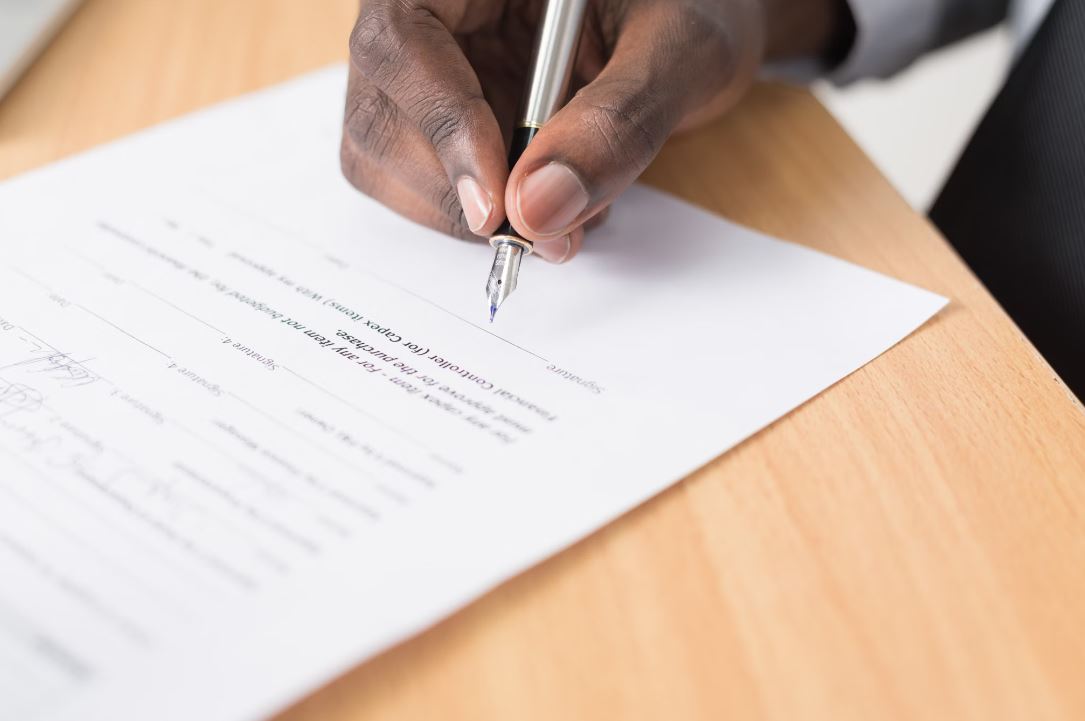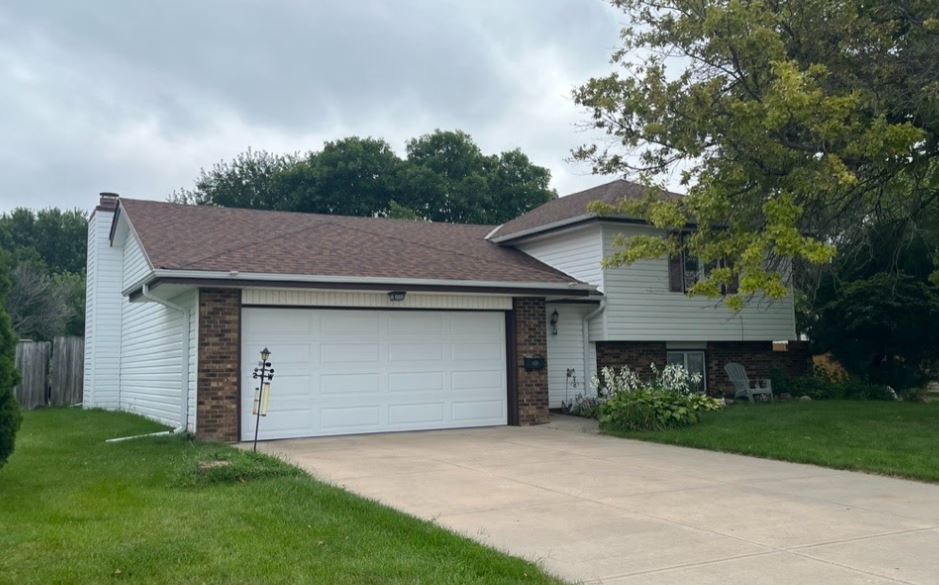When you inherit a house, it can be a blessing or a curse.
On the bright side, you might have just scored something pretty valuable. But flip that coin, and you could be looking at a money pit that needs repairs, taxes, and constant upkeep.
Either way, you've got to figure out what to do with it.
So, what's your move when you inherit a house? How do you deal with this new responsibility?
Don't worry, I've got you covered. This guide will help you wrap your head around the whole process and make the best call for your situation.
Legal And Financial Responsibilities Of An Inherited House
Let's talk about the not-so-fun stuff first.
Inheriting a house comes with some legal and financial responsibilities.
You'll need to deal with probate, pay off any debts on the property, and handle some tax paperwork.

Also Read: Can You Sell A House In Probate?
Here are the other things you need to know:
Insurance
When the homeowner dies, their insurance policy gets rewritten in the name of the person inheriting the house.
But here's the catch - the insurance company won't let you transfer the policy to your name while the house is in probate.
So, if you inherit a house, you can't get insurance in your name until the probate process is done.
To get insurance during this time, you need to transfer the house ownership into your name. Once that's sorted, you can get an insurance policy and protect your new investment.
Keep an eye on the grace period for your insurance policy.
Most companies give you 30 days to figure out your coverage. Some might let you stick with the current policy, but you'll need to keep up with the payments until it expires.
When you talk to the insurance company, make sure your coverage stays intact. If it doesn't, you might need to buy a new policy.
You can do this through the insurance company or a broker. Just make sure to shop around and compare rates before you commit!
Mortgage
A mortgage is basically a loan that lets you buy a house.
You pay it back over 10 to 30 years. If you stop paying, the mortgage lender can take the house. They'll have a lien on the house, but they'll let it go once you've paid off the whole mortgage.
Also Read: Selling A House In Preforeclosure
If you inherit a house with a mortgage, you've got 3 options:
- Sell the house, pay off the mortgage, and pocket the rest. This might be the easiest option money-wise, but it could be tough emotionally if the house has sentimental value.
- Transfer the mortgage to your name and take over the payments. But watch out for any hidden terms in the contract.
- Just keep the existing mortgage and keep paying it. This is usually the cheapest and easiest option if you're not looking to sell.
Taxes You Need To Pay For An Inherited House
Yeah, you guessed it - there are taxes involved. Here's what you might be dealing with:
Estate Taxes
As of 2021, if the estate's total assets and prior taxable gifts are over $11.7 million, you might owe federal estate taxes.
Also, heads up - 17 states and DC have their own estate or inheritance taxes.
Check with your state's tax collector for more info.
Capital Gains Taxes
If you decide to sell the property, you might have to pay capital gains tax.
But here's some good news - you won't be taxed based on what the original owner paid for the home.
When someone dies, the market value of their home resets. So if your parents paid $50,000 for their house and it's now worth $500,000, that $500,000 is your starting point for taxes.
If you sell it for $500,000, you're in the clear.
If you sell it for $550,000, you'll only be taxed on that extra $50K.
What To Do With A Inherited House?
Okay, so you've made it through probate and now you're in charge. What next?
You've got three main options:
Also Read: Selling A House After Death Of Parent (Complete Guide)
#1 Move Into The Inherited House
You could just move in. If you do, you'll be on the hook for repairs, maintenance, property taxes, and homeowner's insurance.
This might make sense if you're looking for a new place and can't afford to buy outright. It could also be a good move if the house is in a great location with good job prospects or schools.
#2 Rent It Out
Not keen on moving? You could rent it out.
This can be a nice source of income, but it's not all smooth sailing. You might struggle to find tenants, deal with difficult renters, and you'll still be responsible for repairs and maintenance.
If you go this route, chat with a real estate attorney about drafting a lease agreement.
This will help protect you and make sure you're following all the rules.
#3 Sell It
The easiest (but maybe most emotional) option is to sell the place.
You might want to talk to a real estate agent to get an idea of what the property's worth. Once you know the value, you can decide if selling makes more sense than renting.
Selling might be your best bet if you need cash to pay off debts or invest elsewhere.
It's also a good option if you don't want the hassle of being a landlord.
Where Is The House?
Now, here's where things get interesting depending on your situation:

If you live nearby, you can keep an eye on the property, meet with potential buyers, and handle any issues that pop up which can make the selling process smoother
Plus this will potentially save you some cash on property management fees.
But if you're far away, be prepared for some extra legwork.
You might need to hire a local property manager or rely heavily on a real estate agent. It could take a bit more time and money, but it's totally doable.
What Is The Condition Of The House?
What about the condition of the house? Well, that's another story.
If the house is in good shape and ready to sell as-is, you're in luck. You might be able to list it right away and get a decent price without much hassle.
But if you're dealing with a house in poor condition or a hoarder home, things can be tough.
You might need to invest in some serious cleaning and repairs before listing.
Or, you could look into selling to a cash buyer or real estate investor (like us! - Sell Your Property Fast) who specializes in fixer-uppers.
They might offer less, but you'll save on renovation costs and time. Plus, you can sell the house much faster (often in days) and you don’t have to pay any closing costs or agent commissions!
Tips For Handling An Inherited House
Here are some things to keep in mind if you inherit a house:
- Act fast. Empty houses can lose value quickly, and you don't want to waste all the hard work that went into the property.
- Wills can be confusing, especially if you're new to this. There might be multiple owners, mortgages, or housing associations involved. Get clear on these details to make the process smoother.
- Get to grips with the tax situation. You'll need to pay property taxes, so talk to a tax expert about what you owe and how to minimize it.
- Get a real estate agent to give you a fair market value. Online estimates can be off, so it's better to get a pro's opinion.
- There are lots of ways to sell an inherited property. If you're the only owner, you've got more flexibility. You can sell online or through a real estate agent.
Final Words
Dealing with an inherited house can be tricky, but if you take the right steps, you can make it a lot easier. It all depends on your situation and what you want to do with the place.
If you don't want to live there, renting or selling might be your best bet.
But if you want to move in, do your homework and talk to some experts to help you make the best decision.
Remember, there's no one-size-fits-all solution here - it's all about what works best for you.
Frequently Asked Questions (FAQs)
How To Transfer The Ownership Of Inherited House?
During probate, the executor can put the house in the beneficiary's name. They just need to fill out some legal forms available on government websites.
What Is Probate, And How Much Time Does It Take?
Probate is a court process where the property is divided up according to the will after someone dies. This happens after paying taxes and debts, and it can take about a year.
How Much Does Probate Cost?
You'll probably need a lawyer to help you through probate. The cost depends on how complicated the estate is. Generally, you're looking at anywhere from $3,000 to over $10,000.

